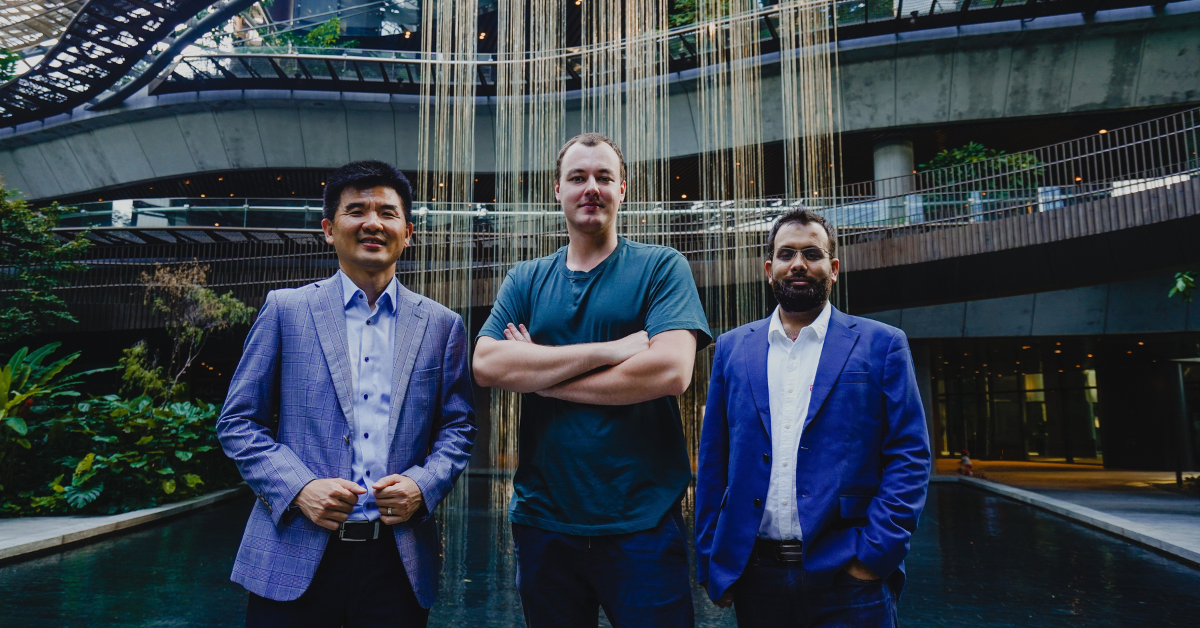The round was led by pi Ventures and saw participation from angel investors ,such as Daniel Ari Friedman, Mahin Gupta, CK Vishwakarma, Priyeshu Garg, and Ashish Tiwari
Silence Laboratories will also use the funding to strengthen its technology stack, ramp up hiring and scale its GTM strategy
It addresses security concerns with regards to crypto wallets, institutional asset agencies and exchanges by deploying MPC-based cryptography and signal processing based layers of proofs
Cybersecurity startup Silence Laboratories has raised $1.7 Mn in its seed funding round led by pi Ventures. The round also saw participation from imToken Ventures and other angel investors, including Daniel Ari Friedman, Mahin Gupta, CK Vishwakarma, Priyeshu Garg, and Ashish Tiwari.
The startup will use the funding to expand its product portfolio and strengthen technology stack. Silence Laboratories will also use the investment to ramp up hiring and scale its go-to-market (GTM) strategy to onboard more clients.
“We need to build a strong technical team and, so, a large part of the fundraise will go towards hiring. We also need to build a very strong business case which is sellable and, for that, we will also hire more for the sales vertical,” Silence Laboratories CEO and cofounder Jay Prakash said.
The Singapore-based startup was founded in 2019 by Prakash, Andrei Bytes and Quek Quee Seng. In Prakash’s own words, Silence Laboratories is a business-to-business (B2B) library provider that enables enterprises to build safer authentication and signature schemes.
Silence Laboratories’ key product offerings include Silent Shard and Silent Auth. It claims that these two products are designed to support ‘varied demands of authentication and authorisations with different levels of contextualization’.
The startup addresses security concerns with regards to crypto wallets, institutional asset agencies and exchanges. It deploys multi-party computation (MPC)-based cryptography and signal processing based layers of proofs to secure digital wallets, exchanges, and login services for Web3.0 and Web2.0 products.
It operates by decentralising the process of encryption and decryption to deter hackers from gaining unauthorised login access.
“Typically for digital signatures, you have a private key that is encrypted, and the basic flaw with that is that your private key is stored in one place. What our library does is that it distributes the key over multiple servers depending on the nature of business and then combines it. Thus, there is no single point of failure,” Prakash said.
The Pricing Model & Future Plans
Responding to a question on Silence Laboratories’ business model, Prakash told Inc42 that the startup plans to charge its clients based on two aspects – version of libraries and volume of APIs consumed annually.
However, he refused to disclose the specifics of its pricing model.
The startup is also working on establishing a corporate research and development (R&D) centre in South Asia, with a specific focus on applied cryptography.
“The investment will also fuel research and development (R&D) and (go) towards joining different alliances,” Silence Laboratories CTO Bytes said.
Silence Laboratories claims to have recently joined global alliances such as MPC Alliance and Decentralised Identity Foundation (DIF) to enable easier adoption of the startup’s libraries.
The startup is still in its nascent stages, and is currently working on pilots with 6-7 companies, Prakash said. It would make announcements regarding ‘a couple of new partnerships’ in a few weeks or a month, he added.
“We need to define protocols to design algorithms with user experience right from the beginning. That is what has been missing a bit. So, it would actually be a proud day for us when we have actually made the whole process invisible,” noted Prakash.
Silence Laboratories also intends to use an open source framework for certain libraries to allow developers to tinker with them. It will use this approach to understand the market and the modalities of the different use cases.
The startup will primarily compete with companies such as Auth0, Centrify, Callsign, Averon, among others, at the global stage.
According to a report, the global cybersecurity market is projected to grow to $376.32 Bn by 2029.


![Read more about the article [Funding alert] The Souled Store raises Rs 75 Cr led by Elevation Capital](https://blog.digitalsevaa.com/wp-content/uploads/2021/08/Imageqvna-1628049308665-300x150.jpg)






